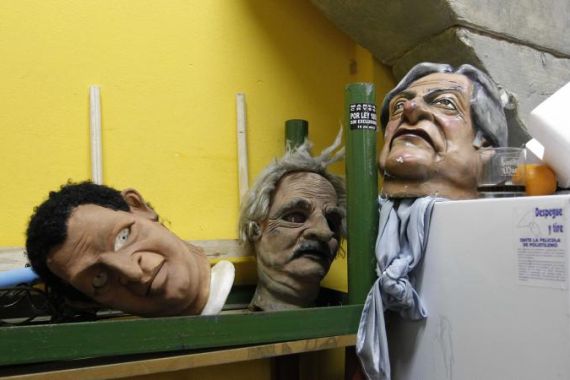A new day for Chavez
After a resounding electoral victory, Venezuela’s president looked like someone who had just returned from a spa.

It is amazing what a difference a resounding electoral victory can do for a man.
One week ago President Hugo Chavez looked swollen and at times exhausted. He fluctuated between insulting his rival, Henrique Capriles (“rightwing bourgeois“ and “bootlicker of imperialism whom I will knock out in the first round”) to softening his tone and admitting he had made mistakes [“like anyone”], asking Venezuelans to give him another six years to make up for them.
It is impossible to say whether Chavez was nervous about the results, but I somehow got the impression that he was not 100 per cent convinced that his re-election was in the bag.
On Saturday night, just hour
Change of mood
s before the polls opened, he was asked whether he was willing to promote a dialogue and work together with his opponents. He said he would answer that question after the election.
At his first news conference after his impressive victory [by more than 10 per cent of the votes], following an even more impressive election with an 80 per cent turnout, I asked that same question again. But before I go to his answer, I want to return to my original point: what difference a victory makes.
On Wednesday Chavez looked like someone who had just returned from a weeklong stint at a spa. Wearing a smart navy-blue suit and blue shirt, he looked much thinner than when I had seen him over the last month on the campaign trail.
[The president had put on a lot of weight during and after his cancer treatment, which bothered him because it contrasted sharply with the youthful, athletic figure of his rival Capriles.]
Now, gone was the stress, and there he was, relaxed and in a very good mood.
For the first time that I can remember, he actually referred to his former election rival by name, Mr Capriles. He explained in detail what “reaching out to the opposition” means to him.
“The opposition has always interpreted the call for dialogue as a sign of weakness,” he told me. “For them, the old way of seeing things, dialogue means imposition and government has to give into their demands or there is no dialogue.”
Consolidation phase
Chavez then dismissed the notion that despite Venezuela’s profound political polarisation, it is a divided country. “All countries are divided. Look at the elections in France. The president won with less than eight per cent!” he scoffed.
“Using that logic, those countries with absolute monarchies that do not hold elections at all are the only ones that are not divided!”
Chavez concluded that he hopes the opposition will join into a constructive dialogue “within the framework of our constitution”, and “propose constructive criticism and legislation”.
What was left very clear, if there had been any doubt, is that Chavez has no intention of modifying the course or intensity of his socialist revolution which he said is “now entering a new phase of consolidation”.
For the opposition, that probably means there is not much to talk about.